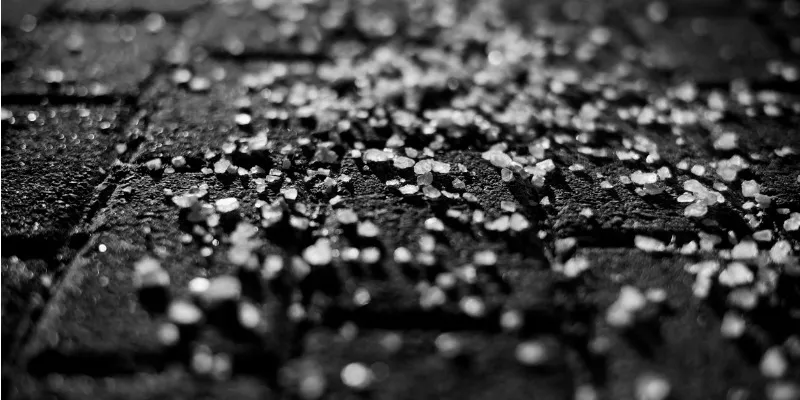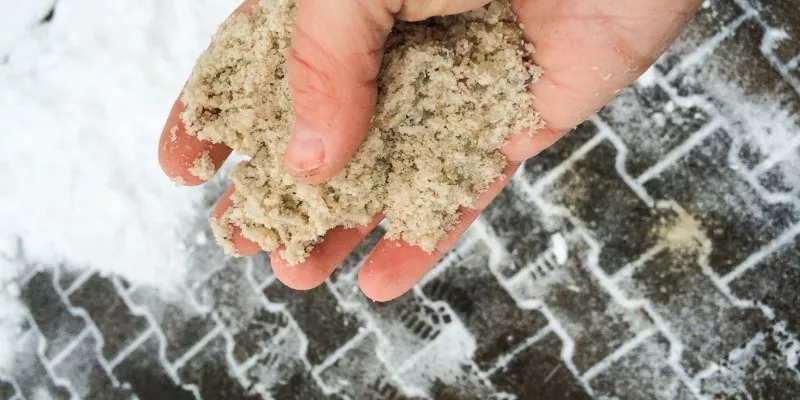
When ice and snow hit your driveway, it creates a slippery hazard that needs immediate attention. The most common way to prevent the perilous risks of falls in the winter is to sprinkle some rock salt on pathways. However, as harmless as salt might appear, it can cause some pretty serious damage to your property when not used properly. Here’s how salt impacts your driveway and what you can do to avoid damage.
What is Rock Salt?
Rock salt is sodium chloride and contains a mix of grit, gravel and stones. When applied to your driveway it begins to heat up and create a brine, which helps melt away ice. The reason this has long been the best way to melt ice on driveways and sidewalks is that it melts the snow and ice while also providing traction to reduce the risk of slips. It’s also an effective salt for interlock driveways.
Salt on a concrete driveway is an excellent choice when you also have a lot of steps to keep clear and there’s no plant life nearby.
The Trouble with Rock Salt
The trouble with rock salt is that it can be harmful in a number of ways including:
It is damaging to concrete causing rusting, cracking and eventually deterioration.
It destroys the plant life along your driveway as it makes it difficult for plants to absorb nutrients.
It is harmful to your pets as it is very irritating to paws, which is further irritated when your pet tries to remove it by licking.
If you do choose to use rock salt, you should remove it from your driveway once the ice and snow disappear. This way you will protect both your driveway and your landscaping. As well, to protect your pets’ paws, use a rinse tray to remove salt residue to keep their feet healthy.
Are there Rock Salt Alternatives?
There are ice melt products available that attract moisture and create a brine. As with rock salt, brine generates heat and melts the ice. Rock salt that is “environmentally friendly” is coated with calcium magnesium acetate. However, it really is not that eco-friendly as the coating melts off.
Instead, you can choose one of the three types of winter salt products available:
- Magnesium Chloride: This is a safer choice in areas where you have a lot of plants for your garden. It is also non-corrosive.
- Calcium Magnesium Acetate (CMA): This mix also contains acetic acid, which is found in vinegar. It won’t cause harm to plants or animals and is ideal for concrete under two years old. This product works differently than other salts as it doesn’t create a brine. Instead, it stops snow and ice from sticking to each other on the pavement and prevents refreezing. The main issue with this product is it creates a messy slush.
- Potassium Chloride: This is a good choice if your driveway is concrete and contains wire mesh or rebar. It is not as fast as the other two choices so isn’t great for heavier snowfalls. It too is not damaging to plants or animals.
A good tip to get the melting benefits and the friction to avoid slippage is to add some sand to the mix. You’ll melt the snow and also provide traction. Just be cautious if you have kids or pets.
We can help you choose the best salt for your driveway. Contact Lane’s Landscaping Supplies for all of your road salt needs this winter.


